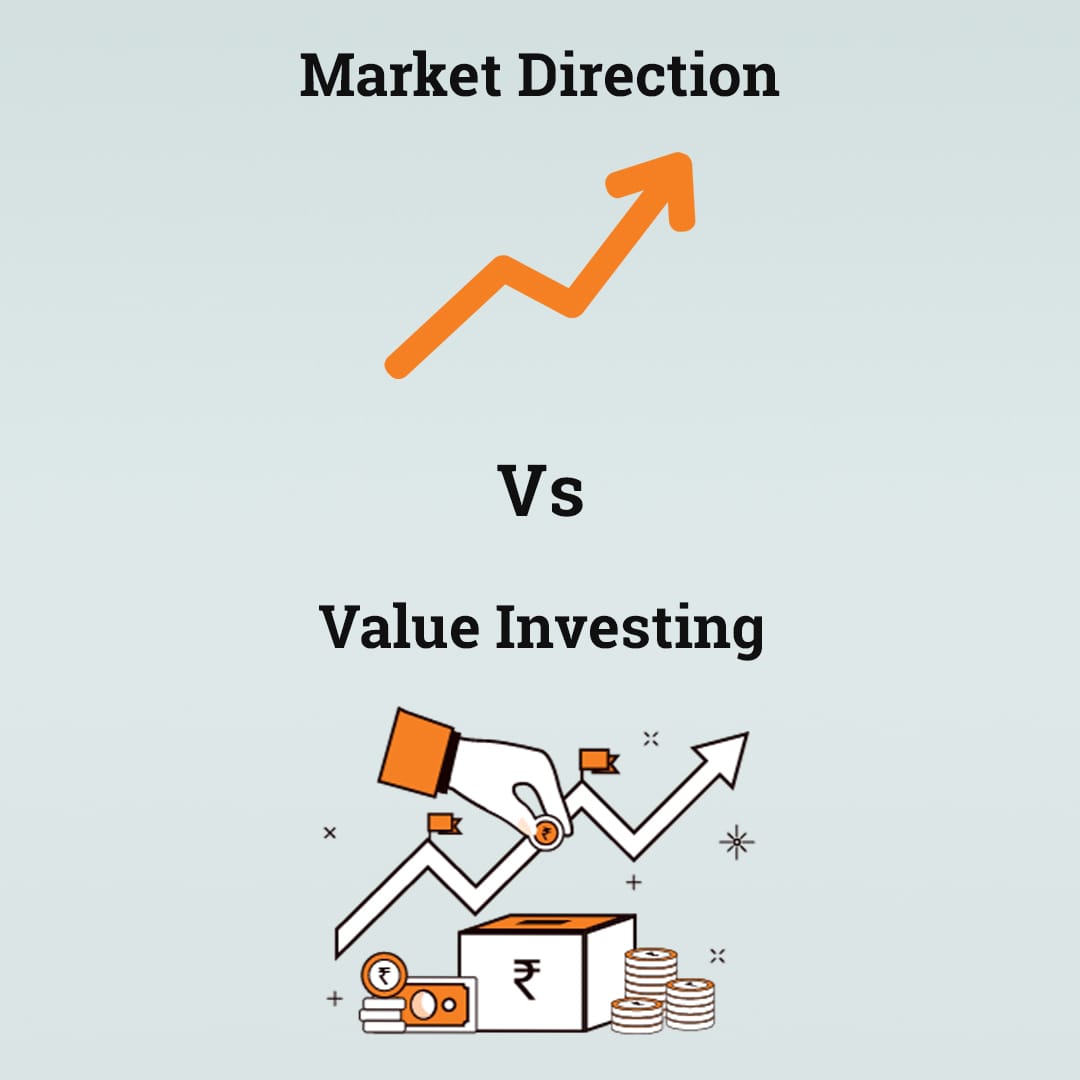Market direction Vs Value investor
Markets have been like weather in Delhi. Sometimes rising more than 100 points in a day (becoming hot) and falling by a similar score the next day (chiller). Nifty picked itself from a correction of about 15% and more blue-chip stocks are down by more than 20%.
There are two most important things to think – what will be the direction of the markets and how will the stocks in my portfolio behave. The first part is something which a value investor is not much worried about as she/he takes investment decision based on fundamental value and not only price (I mean that’s what value investing is all about: value Vs price, isn’t it!). Predicting the market behaviour is not only dicey but can be a costly affair as even though our prediction about market and stocks is proved correct but the when (timing) is another unknown.
Value investing has been defined by countless investors and academicians. Simply put it is investing in stocks that provide enough evidence of the value that an investor finds have been ignored by the market. But value investing does not at all mean investing in all low P/E, low P/BV stocks or those stocks which have fallen by 50% or more during the year.
Important for us to understand is that markets can misprice stocks despite existence of FIIs, IIs, DIIs, analysts, etc. And the most common reason which I see for such mispricing is that so many people are analysing stocks with borrowed beliefs. If the financial TV channels and reports say that infra sector shall not do well, then majority of us buy such analysis and not the stocks. Result is that the stocks get the beating much more than what is deserved.
It is easier to show astronomical returns by using their lowest price during the period of analysis. However, one can agree that stocks which are fundamentally good businesses with able management and a strong track record of performance give super-normal returns. Examples are many but for instance Reliance, Asian Paints, ICICI Bank, Infy, TCS, SBI, Bajaj Auto, … list can go on.
Still the probability of suffering losses can’t be eliminated but idea is to minimize the probability of losses in the long term.

